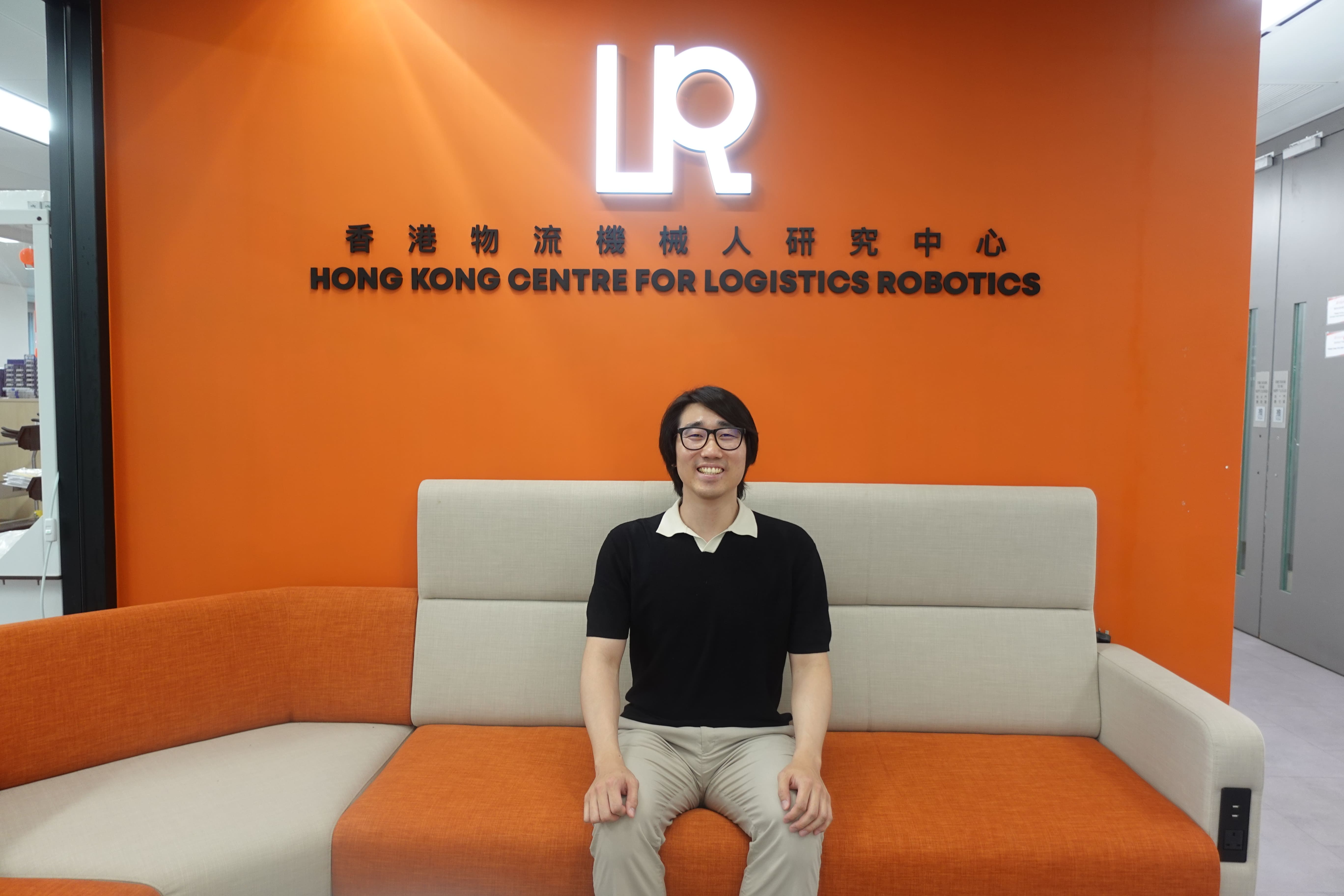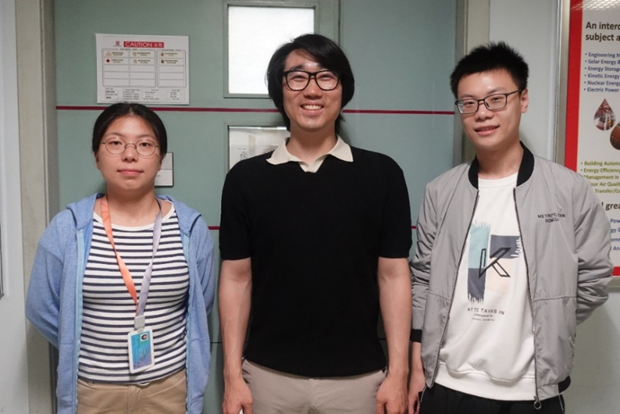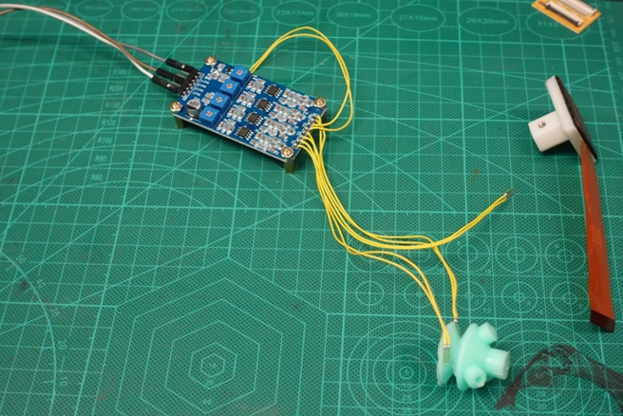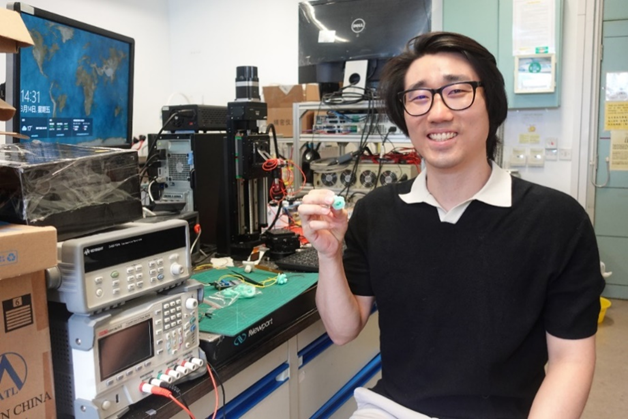In a world transformed by technology, robotics stands at the forefront of innovation. Dr. Lee Jungpyo, a UC Berkeley (UCB) postdoc, blends mechanical engineering and brain research to pioneer projects like smart suction cups in collaboration with Hong Kong Centre for Logistics Robotics (HKCLR). In this interview, he shared insights on global research cultures, the evolving robotics landscape, and advice for aspiring engineers.


Dr. Lee's academic journey began in South Korea, where he earned his bachelor's and master's degrees in mechanical engineering. His major focused on engineering, and his research centered on brain-related technologies, particularly micro-electromechanical systems (MEMS). He became intrigued by human-brain interaction and the crucial role of robotics in this field. As he explored this topic, he realized he wanted to shift his focus to robotics, seeing it as a practical way to enhance human life through technology.
In his early 20s, Dr. Lee already recognized that obtaining a PhD was essential for his career. After receiving his doctorate at UC Berkeley, he continued his academic journey there. His professor, Hannah Stuart, encouraged him to consider a postdoc position. This suggestion resonated with him, as he recognized the potential for further exploration in a collaborative and innovative environment.
When Dr. Lee shifted his focus to robotics, he didn't fully grasp the field's potential or the extensive opportunities it offered. He feels thankful for his decision and now finds himself profoundly satisfied with the path he has taken.

Dr. Lee's contributions, in close collaboration with HKCLR, were instrumental in bringing the smart suction cup system from concept to reality. Working with Prof. Xu Dongyan’s team, he sought to enhance the suction cup's capabilities by leveraging the expertise of sensor systems. His role focused on characterizing the robotic system and ensuring the successful integration of these sensors. By integrating advanced sensors into their design, they aimed to gather more data, which would pave the way for more sophisticated control methods.

A group photo with Prof. Xu Dongyan’s students

A smart suction cup system under testing
What sets their research apart is its focus on overcoming the limitations of visual information. By incorporating advanced sensor technology, they aim to enhance its precision and adaptability, making it suitable for a wider range of industrial and logistical applications, such as grasping transparent or reflective materials. This breakthrough has the potential to revolutionize robotics in industries like manufacturing, logistics, and beyond, enabling automation in environments where visual data is limited or unreliable.
Dr. Lee highlighted that access to advanced sensory technology and collaborative opportunities at HKCLR has opened new avenues for exploration.

In discussing Dr. Lee’s research experiences across different regions, he shared some personal experiences. Around a decade ago, while earning his bachelor’s and master’s degrees in Korea, he observed a more structured research culture where students largely followed their professors’ guidance. Now being a postdoctoral fellow in the U.S., he is experiencing an academic system emphasizing freedom and flexibility, encouraging graduate students to develop their research agendas and take ownership of their work. Hong Kong, on the other hand, blends these approaches, featuring a dynamic, international environment where researchers collaborate and share diverse perspectives.

Dr. Lee at CUHK lab
Dr. Lee believes that despite their differing research cultures, the competitive and collaborative efforts in these regions will drive advancements in robotics that enhance our daily lives, effectively addressing both current needs and future challenges.
Reflecting on an unforgettable moment, Dr. Lee recalled finalizing their research paper for the ICRA conference. Due to time zone differences, he only read a message about a sensor malfunction the next morning. A teammate had worked through the night to resolve the issue and gather the necessary data. They submitted the paper just in time, and its acceptance was a great relief and accomplishment.

The robotics field is still evolving, with many challenges to tackle and breakthroughs to achieve. Dr. Lee mentioned that the field of robotics offers vast opportunities in both academia and industry. He encourages young researchers to consider robotics if they are passionate about engineering and innovation.
To overcome problems and stress, Dr. Lee emphasized the importance of seeking advice from professors and senior colleagues. He found that discussing issues directly with them, even when they don’t have specific answers, often leads to inspiration and new ideas. Additionally, he said that being with his family brings him comfort, helping him cope with stress and keep a positive attitude.

When Dr. Lee first arrived in Hong Kong, he felt like stepping into a movie scene, reminiscent of the films he watched as a child, such as those featuring Bruce Lee or "Chungking Express." He found that lively neighborhoods like Mong Kok and Jordan each had their unique character, filled with colorful signs and bustling restaurants. The stunning views of Hong Kong Island from Tsim Sha Tsui also left him in awe.
On this trip, Dr. Lee encountered unexpected cultural aspects. He was surprised by the sight of domestic helpers enjoying their day off on Sundays, which he hadn’t noticed during the previous visit. Seeing them gather to sing, dance, and share food showcased the vibrant community spirit of the island making his experience even more memorable.